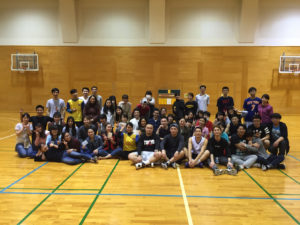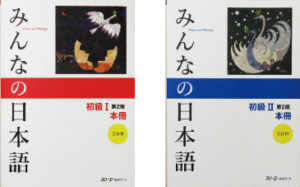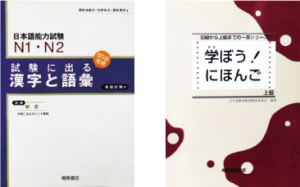In addition, the Eastern Asian countries have a close economic and cultural relationship, and the goals of students studying Japanese are becoming more varied, with students preparing for advanced education in universities and graduate schools, for business, and for their goal of teaching Japanese, etc.
In this department, students learn the four basics of “reading, writing, listening and speaking,” after which they use a varied cultural experience to deepen their understanding of the background behind the words. They do not just do passive learning, but they also think in Japanese and acquire the ability to express themselves in Japanese.
Overview of the Education Policy
- 1 Class has roughly 15 students, with classes formed by ability level, and instructed with a practical curriculum.
- It boasts a high JLPT 1 passage rate, and many move on to advanced education in professional schools, universities and graduate schools.
- Students experience a variety of cultural experiences, deepening their understanding of Japan.
- Classes are run on a homeroom system, in which students receive support towards advanced education and more.
- Those with excellent grades are awarded scholarships.
- Students use class time made for presentations to improve their “presenting in Japanese” skills.
Japanese Department Yearly Learning Plan
April
- April Entrance Ceremony
May
- Classes outside of the school (barbeque etc.)
- Health Check-Up
June
- First Quarter Final Exams
- Examination for Japanese University Admission for International Students
July
- JLPT
- Presentation Competition
August
- Start of Summer Vacation
September
- Second Quarter Final Exams
October
- October Entrance Ceremony
- Sports Competition
November
- Examination for Japanese University Admission for International Students
December
- Otanoshimi Party
- JLPT
- Third Quarter Final Exams
- Start of Winter Vacation
January
- Speech Competition
February
- Classes outside of the school (Disneyland etc.)
March
- Fourth Quarter Final Exams
- Sports Competition
- Graduation Ceremony
- Awarding of Shurin Scholarship
- Beginning of Spring Vacation


Curriculum
Beginner
Hiragana & Katakana, 750 kanji, beginner grammar, listening comprehension, beginner level everyday conversation, sentence pattern composition, beginner reading comprehension, pronunciation

Intermediate
Character vocabulary (JLPT N2), Intermediate grammar, Intermediate level reading comprehension, Intermediate conversation (role play etc), Composition I & II, Japanese affairs, audiovisual memorization (movies & news etc.), presentation, JLPT N2 Preparation, pronunciation

Advanced
Character vocabulary (JLPT N2), Intermediate grammar, Intermediate level reading comprehension, Intermediate conversation (role play etc), Composition I & II, Japanese affairs, audiovisual memorization (movies & news etc.), presentation, JLPT N2 Preparation, pronunciation

Characteristics of the Japanese Department
-
There are classes in the AM and PM so you can study at the right Japanese level for you.
2. At our school’s Japanese Department, we divide students into classes by Japanese ability. Beginners will firm up their Japanese abilities and at the same time learn the four skills of Japanese (reading, writing, listening and speaking) so they do not have a problem in daily life. Students above intermediate level will study to be able to speak more natural Japanese.
-
We have high passage rates of JLPT N1 and many students move on to advanced education at famous universities and graduate schools.
In this Department, we instruct carefully so that many of the students can pass the JLPT N1 and N2 with high scores. For those who desire to move on to advanced education we also offer preparation courses for the Examination for Japanese University Admission for International Students Preparation, and most of the students move on to advanced education in universities and graduate schools in Japan.
-
5. After graduation, students may move on to where interpreting and translation professionals are made: the “Japanese-Korean Interpretation and Translation Department” and the “Japanese-Chinese Interpreting and Translation Department.”
6. After graduating from our Japanese Department, students may get on the path to becoming interpreting and translation pros, “Interpretation and Translation departments.” In these departments, students learn the different concepts of Japanese, Korean and Chinese as well as thoroughly learning many expressions while also acquiring interpreting and translation techniques. These departments will raise excellent interpreters and translators who will help build new connections for the next generation between Japan and Korea and Japan and China.
Regarding the Study Abroad Visa
Period of Stay: Study abroad visas may be granted for this department for study-abroad students if they study from 1 year to 1 year and three months (or if entering in October, two years).
Regarding Auditing System
At Shurin, those who do not need a visa (those with a spouse visa, permanent residents, etc.) may audit the same classes as full students for a period as short as 3 months as auditors.
If you would like to enjoy travel and also study Japanese at the same time during your working holiday or if you are a spouse who would like to learn some Japanese necessary for everyday life, etc., you are all welcome regardless of age and goals here at Shurin.
